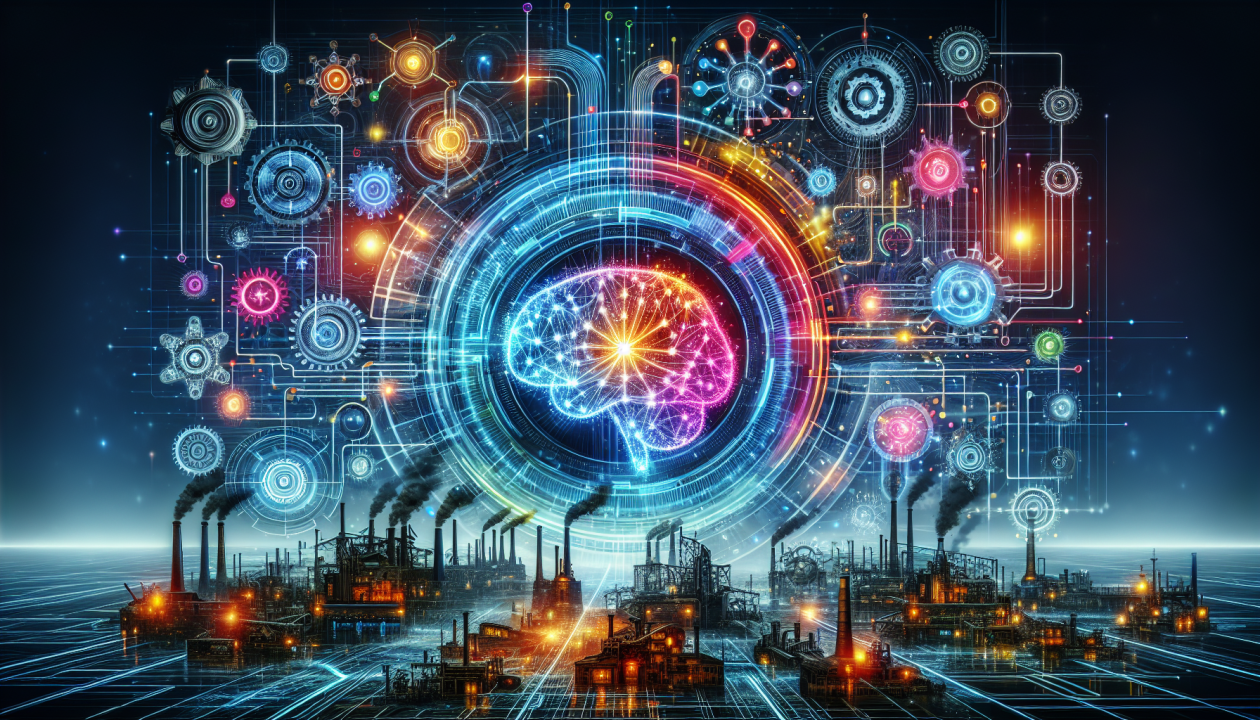Accelerated Adoption of Artificial Intelligence (AI): Transforming Business Operations
Artificial Intelligence (AI) is rapidly becoming a cornerstone of modern business operations, reshaping industries by automating tasks, enhancing customer experiences, and driving data-driven decision-making. The integration of AI has expanded beyond basic automation, now encompassing predictive analytics, personalized marketing, and strategic decision-making. As AI technologies advance, businesses across various sectors are leveraging them to gain a competitive edge and increase efficiency.
AI as a Catalyst for Business Automation
The adoption of AI-driven automation is revolutionizing how businesses operate. Tasks that were previously time-consuming, such as customer service interactions, data entry, and inventory management, are now automated, reducing human intervention and minimizing errors. Companies are deploying AI-powered chatbots, automated workflows, and robotic process automation (RPA) to streamline processes and improve productivity.
Enhancing Customer Experience Through AI
AI has significantly improved customer experiences by offering real-time support and personalized interactions. Chatbots and virtual assistants, powered by natural language processing (NLP), provide instant responses to customer queries, reducing wait times and improving satisfaction. AI-driven recommendation engines analyze user behavior to suggest relevant products or services, enhancing engagement and boosting sales.
AI in Predictive Analytics and Business Intelligence
Businesses are using AI-powered predictive analytics to anticipate market trends, consumer behavior, and potential risks. AI-driven business intelligence tools analyze vast amounts of data to uncover patterns and generate actionable insights. Companies leverage this information to optimize pricing strategies, improve supply chain management, and enhance marketing efforts.
The Role of AI in Personalized Marketing Strategies
AI has revolutionized marketing by enabling hyper-personalization. Machine learning algorithms analyze customer data to create tailored marketing campaigns that resonate with individual preferences. Businesses can deliver personalized advertisements, product recommendations, and email campaigns, leading to higher conversion rates and customer retention.
AI-Powered Fraud Detection and Cybersecurity
Cybersecurity threats are evolving, making AI-driven fraud detection crucial for businesses. AI algorithms monitor transactions and user activity in real-time to identify suspicious behavior and prevent fraudulent activities. Financial institutions and e-commerce platforms rely on AI to enhance security measures and protect sensitive customer information.
AI’s Impact on Workforce Productivity
AI is transforming workforce productivity by automating repetitive tasks and allowing employees to focus on high-value work. AI-driven tools assist in scheduling meetings, organizing data, and generating reports, reducing administrative burdens. Additionally, AI-powered collaboration platforms enhance remote work efficiency, ensuring seamless communication among teams.
AI in Healthcare and Medical Research
The healthcare industry is witnessing significant AI adoption for diagnostics, treatment planning, and drug discovery. AI-powered algorithms analyze medical images, detect diseases early, and assist in personalized treatment recommendations. Pharmaceutical companies use AI to accelerate drug development and identify potential candidates for clinical trials.
AI’s Role in Financial Services and Banking
Financial institutions leverage AI to enhance customer interactions, automate risk assessments, and optimize investment strategies. AI-driven robo-advisors provide personalized investment recommendations, while automated underwriting processes improve loan approvals. AI-powered chatbots assist customers with banking transactions and financial inquiries.
AI in Manufacturing and Supply Chain Optimization
AI is revolutionizing manufacturing by improving production efficiency and supply chain management. Predictive maintenance powered by AI helps manufacturers identify potential equipment failures before they occur, reducing downtime and maintenance costs. AI-driven logistics optimization ensures efficient inventory management and demand forecasting.
AI-Powered Smart Assistants in Everyday Life
AI-driven smart assistants, such as Amazon Alexa, Google Assistant, and Apple’s Siri, have become an integral part of daily life. These AI-powered tools help users manage tasks, control smart home devices, and access real-time information, showcasing AI’s growing role in consumer applications.
Challenges in AI Implementation for Businesses
Despite its benefits, AI adoption presents challenges for businesses. High implementation costs, data privacy concerns, and the need for skilled AI professionals pose barriers to adoption. Companies must invest in AI training programs and ensure ethical AI usage to overcome these challenges.
The Future of AI in Business Strategy
AI’s role in business strategy is expected to expand further as technologies evolve. Businesses are exploring AI-driven innovation in areas such as quantum computing, autonomous systems, and advanced robotics. AI’s ability to analyze complex data and generate insights will continue to shape strategic decision-making.
Ethical Considerations and Responsible AI Usage
As AI adoption accelerates, ethical concerns surrounding bias, transparency, and accountability have emerged. Companies must implement fair AI practices, ensure data privacy compliance, and develop AI policies that promote responsible usage. Ethical AI governance is crucial to maintaining trust and preventing unintended consequences.
AI as a Driving Force in the Digital Economy
In conclusion, AI is transforming business landscapes by automating operations, enhancing customer experiences, and enabling data-driven decision-making. From personalized marketing to predictive analytics, AI’s capabilities continue to evolve, offering businesses new opportunities for growth and efficiency. While challenges remain, the responsible and strategic implementation of AI will shape the future of industries, driving innovation and competitiveness in the digital economy.
Viola Rowland, an accomplished author at Bee Bumble Entertainment Magazine, blends her love for entertainment with her gift for storytelling. With a knack for capturing the essence of pop culture phenomena, Viola's engaging articles provide readers with fresh insights into the world of entertainment, making her a standout contributor to the magazine.


































